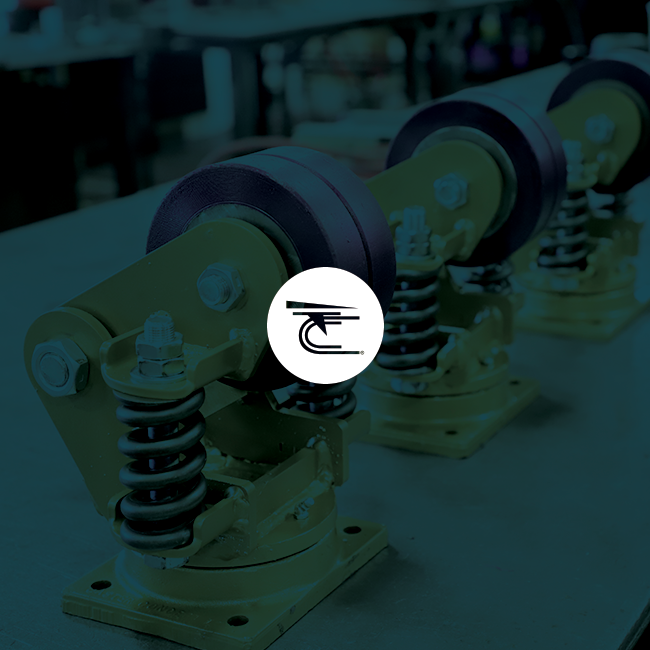

The advent of polyurethane roughly 50 years ago revolutionized many industries and products, including heavy-duty industrial casters and wheels. Today, roughly 80 percent of all heavy-duty caster and wheel applications require polyurethane tires attached to the wheel core.
There are several formulations of polyurethane tread material available. And each is designed to achieve various benefits, for varying applications and environments. For example, formulations are created to achieve tear resistance, reduce exertion, prevent damage to floors and dissipate heat in powered applications. Therefore, choosing the right formula for your needs is very important.
However, the right formulation is only part of the equation. Another important factor to consider is the manufacturing and application process. This relates to how the polyurethane is formulated and bonded to the wheel.
When the process is done right, polyurethane wheels are excellent, long-lasting products. Unfortunately, quality control issues arise through improper processing or by using urethane meant for non-dynamic applications. These situations can cause failures and can increase the risk of injury. To increase the chances of obtaining the highest quality polyurethane-tired wheel, there are five critical factors to take into consideration:
Heat exposure – While polyurethane is extremely tough when used properly, excessive heat will melt most polyurethane tires. Most common urethanes can’t withstand ambient heat above 230 degrees for more than 60-90 minutes without damage. Internally generated heat (by cyclic deflection of the urethane), in the 250°F range will liquefy the material within 15 minutes.
Physical properties – Polyurethanes used for industrial applications require higher physical properties. To ensure the proper urethane is used for your application, first consider: tear strength; tensile strength; modulus; and abrasion resistance.
Hot-cast urethane – Industrial wheels should always be produced using hot-cast urethane. Urethanes that are hot-cast, or poured at heat levels of 160-170° F and cured in the 190-240° F degree range, produce superior properties. These properties are necessary for your polyurethane wheel to carry out demanding dynamic applications in the industrial setting. Urethanes processed and cured at room temperature seldom possess the superior physical properties necessary for industrial wheel applications.
Quality control – Choose an ISO 9001-2008-certified manufacturer that follows a quality procedure. This will help alleviate hidden manufacturing defects caused by poor manufacturing procedures, which are the most common causes of failure in polyurethane wheels. This failure typically occurs at the point where the urethane and the core (steel or cast iron), bond to support dynamic wheel applications. The manufacturer must properly prepare the core and cleanse the prepared surface, properly apply the bonding agent, and properly pre-heat the core. If any step isn’t performed correctly, defects can occur that increase the probability of failure at the bond and wheel.
Proper mix ratio – Modern meter mix machinery assures the proper ratio of isocyanates to the curing agent, which is critical to achieving peak performance in the formulation of polyurethane. Stoichiometry is the measurement of the ratio of isocyanates to the curing agent. There are many modern machines equipped with advanced metering systems and mixers that ensure a consistent, standard stoichiometry mixture. Improper mixing creates material that might appear correct but won’t perform as designed.
At Caster Concepts Inc., our engineers bring years of expertise to helping you determine the proper material for your polyurethane tread, our sister company, Reaction Industries LLC., produces the highest quality urethane with the most advanced equipment available. Our mechanical and polymer engineers have many years of experience and knowledge, ensuring that you will obtain the right formulation to meet the most demanding needs.
For information please contact us at customercentral@casterconcepts.com or call 517-680-7950.